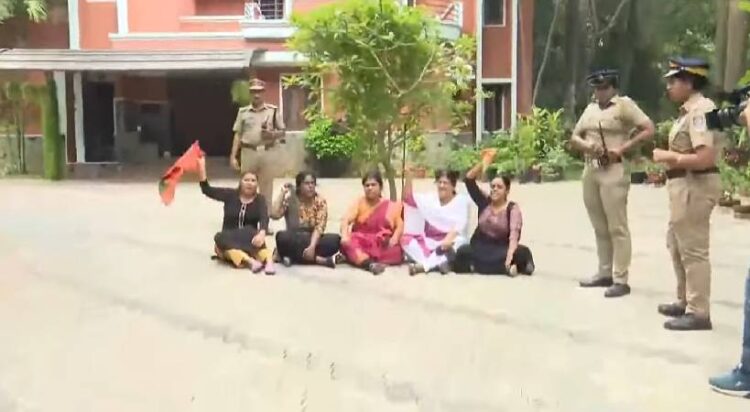In a controversial development, the Kerala Police has registered non-bailable cases against journalists associated with Janmabhumi Malayalam daily and Janam TV Malayalam TV channel. The charges stem from their coverage of the Bharatiya Mahila Morcha agitation in connection with the recent Kattappana Fast Track Court verdict acquitting Arjun Sundar, a local Democratic Youth Federation of India (DYFI) leader, accused in the tragic rape and murder case of a six-year-old girl on June 30, 2021.
The Bharatiya Mahila Morcha workers had organised a protest march, culminating in their entrance to the residence of the State Police Chief (SPC) DGP Shiekh Darvesh Sahib IPS on December 16 morning. The protestors voiced their concerns over what they perceived as the prosecution’s failure in the investigation of the Vandiperiyar rape and murder case.
Notably, the charges extend to Janmabhumi photographer Anil Gopi, accused of capturing images during the agitation, and Janam TV reporter Reshmi Kartika along with videographer Nitin, both charged under the same section for reporting and shooting. It is crucial to highlight that both Janmabhumi and Janam are media houses inspired by the Sangh ideology.
Curiously, several mainstream media reporters and photo-videographers were present during the incident, actively reporting and documenting the agitation. Surprisingly, no charges have been filed against them, and the police or security personnel did not raise any objections to their activities. Legal experts are suggesting that the cases against the aforementioned media personnel might be considered a security lapse.
Critics argue that the charges against the journalists are a blatant infringement on the freedom of the press and the fundamental right to expression. The move is being labeled as a fascist step, challenging the principles of democracy. This development raises questions about the state of media freedom, especially when it comes to covering events that involve political sensitivities.
Furthermore, it is noteworthy that both Janmabhumi and Janam have resolved to confront the legal challenges posed by the government, asserting their commitment to resisting what they perceive as a fascist encroachment on the freedom of the press. The incident has also prompted concerns about the larger narrative around media freedom and the potential ramifications for journalists covering sensitive issues. The case has drawn attention to the political dynamics in the state, with allegations of bias and selective targeting echoing in various quarters.




















Comments